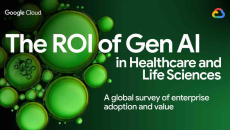Artificial Intelligence
At HIMSS25, data experts from the health system will describe how a machine learning model integrated with their Epic EHR gives care teams patient-specific guidance to prevent falls.
Darren Webber and Nathan Licht, principal data analysts at Cedars-Sinai, preview their HIMSS25 presentation on how chart abstractors use generative AI to detect sepsis and determine treatment and are teaching LLMs to ensure improved functionality.
Artificial intelligence forecasts scheduling changes and improves resource productivity and team coordination to increase case volumes without compromising quality and decrease staff burden. The result for Houston? A 15% increase in OR capacity.
Providing individuals with access to technology-based clinical engagement programs that integrate human health coaching, personalized content and data insights can reduce health risks, says Avid Health CEO Tom Allen and COO Laura Tan.
The private hospital operator has started piloting Ramsay Scribe with plans to expand across inpatients and mental health outpatients.
An AI-powered evaluation framework can help test and scale AI implementations in healthcare, Flinders University researchers claimed.
The newly launched platform integrates registration, test data sharing, pre-consultation, and remote treatments.
SPONSORED
Discover how global enterprises are already seeing significant gains in productivity, ROI, and more–and use the insights as a benchmark for your own gen AI journey.
Robert Connely of Pega says patching legacy systems will give way to true health IT modernization, a security breakthrough will lead artificial intelligence into routine use – and AI will make value-based care the industry standard.
The preconference symposium, scheduled for March 3, will offer attendees valuable perspectives on selecting the right artificial intelligence tools, working toward seamless integration and enabling clinical, financial and operational ROI.










